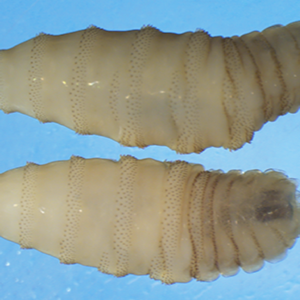By Marie Rosenthal, MS
The Maryland Department of Health (MDH) reported a human case of New World screwworm (NWS) myiasis in a person returning from El Salvidor, according to the Department of Health and Human Services (HHS).
It has been decades since the United States has seen a human case of NWS myiasis, which is a parasitic infestation of fly larvae in the tissue. NWS primarily affects livestock but can also infest people. 
“The Maryland resident has recovered from the infection, and the investigation confirmed there is no indication of transmission to any other individuals or animals,” said David McCallister, the public information officer in the MDH Office of Preparedness and Response.
Currently, the risk to public and animal health in Maryland from this introduction is very low,” he added.
The CDC supported the state’s investigation, and the Department of Agriculture initiated targeted surveillance for NWS within a 20-mile radius of the affected area, encompassing portions of the District of Columbia, Maryland and Virginia. “To date, all trap results have been negative for NWS. There have been no detections of NWS in the U.S. in livestock or other animals since the last outbreak of NWS in the Florida Keys was resolved in 2017,” HHS said in a statement.
However, Mr. McCallister told Infectious Disease Special Edition: “The detection serves as a timely reminder for healthcare providers, livestock owners and others to maintain vigilance through routine monitoring, as prevention is paramount.”
Healthcare providers in Maryland should report suspected cases immediately to the MDH at (410) 767-6700 or their local health department. A clinical overview of NWS myiasiscan be found here.
Mexico and Central America are experiencing an outbreak in animals, according to the FDA, which earlier in August granted emergency use authorizations for animal drugs to treat or prevent NWS infestations. In addition, the Department of Agriculture announced initiatives to monitor and prevent the spread of NWS in animals in the United States, which could affect the food supply. The U.S. food supply has already been highly affected by H5N1, which required the culling of millions of animals.
So far, there have been no animal cases of NWS reported in the United States. However, Mr. McCallister said that owners of livestock should be vigilant. “Livestock owners in Maryland should monitor their animals for any symptoms and immediately report any suspected cases to the Maryland Department of Agriculture at (410) 841-5810,” he said. Here is a list of animal symptoms and prevention strategies.
{RELATED-HORIZONTAL}